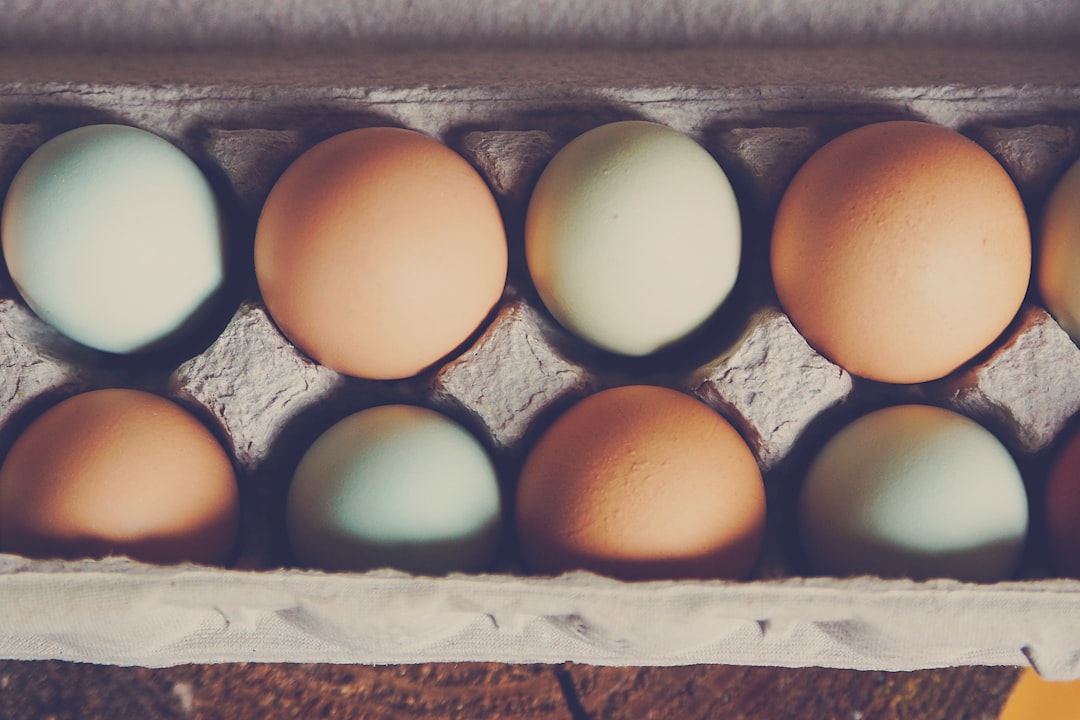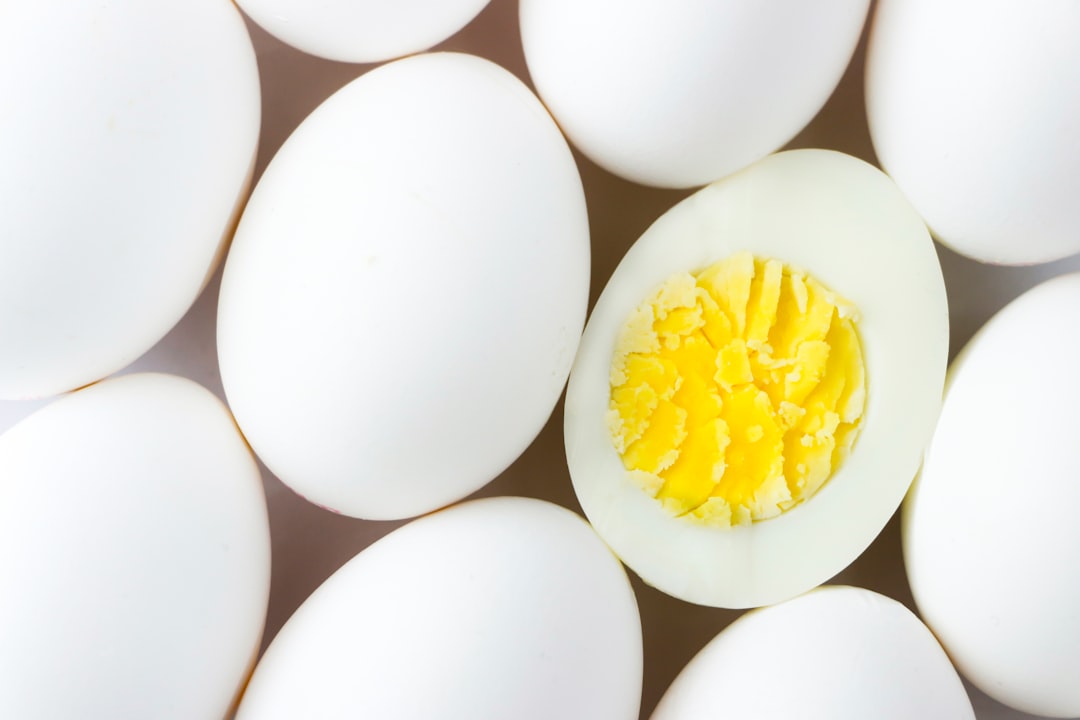Can Dogs Eat Eggs? Are Eggs Good For Dogs?

There are some affiliate links below, but they are all products I highly recommend. For more info, view my disclosure here.
Can dogs eat eggs? I don’t know about you, but when I’m cooking something that’s overall regarded as healthy for humans, I start to wonder if it’s just as good for my dogs to eat. I was making breakfast recently and thought “hmm, can I feed my dog eggs?” Read on to find out the answer!
The answer is yes, dogs can eat eggs, but there are a few things you should know before you give them to your dog. In this article, we will discuss the benefits of eggs for dogs and how to feed them eggs safely.
The Benefits of Eggs for Dogs
There are many reasons why dogs should eat eggs. First of all, eggs are a good source of protein. In addition, eggs contain choline, which is important for dogs because it helps to keep their brain and liver healthy. Finally, eggs are a good source of vitamins and minerals, including vitamin B12, which is important for dogs because it helps to keep their blood cells healthy.

How Do You Cook Eggs For Dogs?
Cooking eggs for dogs can be quite easy! You need to make sure that the eggs are cooked all the way through. You can cook eggs in a variety of ways, but one of the simplest is to scramble them.
You can cook them in a pan on the stovetop, or in the oven. Even making hard boiled eggs is a good option. Just make sure to skip the seasonings, as they’re not recommended for dogs!
Do Eggs Give Dogs Diarrhea?
Eggs are a common ingredient in dog food, and many owners believe that eggs help to keep their dogs healthy. However, some people believe that eggs can cause dogs to experience diarrhea.
Whenever introducing a new food to your dog’s diet, there’s always a risk of upset stomach, especially with more sensitive dogs. To minimize this, start with only adding small amounts of egg to your dog’s meals until they adjust.
How Do Eggs Benefit Dogs?
- Eggs can provide dogs with high-quality protein, essential vitamins, and minerals.
- Eggs can help to regulate a dog’s diet, providing them with the nutrients they need to stay healthy and fit.
- Eggs can be used as a treat or as part of a regular meal plan for dogs.
- Eggs can help to keep dogs healthy and strong, providing them with the essential nutrients they need to stay active and healthy.
What Vitamins and Minerals Are In Eggs?
Eggs are a good source of vitamins and minerals, including vitamin D, choline, vitamin E, folate, and iron phosphorus, selenium, and vitamin B12. They are also a good source of protein.
Can I Feed My Dog Raw Egg?
Some veterinarians recommend cooking eggs before feeding them to your dog, while others advocate for raw eggs as being fine for dogs.
There are a few concerns that owners should be aware of when feeding raw eggs to their dogs. These include the risk of salmonella poisoning and the possibility that the eggshell could contain salmonella.
If a dog eats an egg contaminated with salmonella, they could get an infection called Salmonellosis. The symptoms of Salmonellosis includes fever, vomiting, diarrhea, and may also include lethargy.
Eggs may also lead to biotin deficiency because they contain avidin, an enzyme that interferes with the absorption of biotin in the body.
Biotin is a water soluble vitamin that is important for the overall health and well-being of your dog. Biotin deficiencies are rare, but it is good to be aware of.
If you plan to feed your pup raw eggs, I always recommend speaking to your veterinarian first to make sure it’s a good idea for your dog.

Can Dogs Eat Egg Shells? Are Egg Shells Good for Dogs?
The shells of eggs are a great source of calcium for dogs. The shells are also a good source of other nutrients.
I process our egg shells by giving them a quick rinse of water and let them air dry a bit. I then spread them out on a cookie sheet and bake them in the oven on a low temperature for an hour or so (usually around 200 degrees, but your oven may vary).
Once they’re cool, I grind them in a coffee grinder I use exclusively for eggs. Then I pour them into a spice jar and sprinkle as needed. I’ve also used it as a topping on my PupCakes recipe here!
Can Dogs Eat Quail Eggs?
Dogs can eat quail eggs, as long as they are cooked properly. Quail eggs for dogs can be cooked like chicken eggs, but for a longer time as they’re much bigger.
Can Dogs Eat Duck Eggs?
Duck eggs are a good source of protein for dogs. They contain nine essential amino acids, which is important for dogs. Duck eggs also contain vitamins and minerals, including vitamin A, which is important for eye health.

Can Dogs Eat Boiled Eggs?
Boiled eggs can be a great snack for dogs, as they are low in calories and high in protein. They’re fairly easy to make, so you can boil them, let the eggs cool, then break apart and add to your dog’s meal. This can be a great way to entice a picky eater to finish their meal.
Can Dogs Eat Scrambled Eggs?
Dogs can eat scrambled eggs without seasoning. My Rico loves his eggs scrambled! He’s a super picky eater, so anything I can do to make sure he has a good meal is helpful. As with the hard-boiled eggs, you’ll want to let it cool before serving.
How to Feed Eggs to Dogs
Feeding eggs to your dog can be a fun experience for both of you. Dogs love to explore their food, so providing them with eggs will encourage them to eat more healthily. There are many ways to feed eggs to your dog, but the most important thing is to be creative and have fun. Here are a few tips:
- Break the eggs into small pieces and put them in a small bowl.
- Add a little water or milk to the bowl, if needed, so the eggs are moist but not wet.
- Give the bowl to your dog and let them explore.
- If your dog is not interested in the eggs, try different ways of presenting them. You can add them to a LickiMat or similar bowl to encourage eating.
Precautions When Feeding Eggs to Dogs
There are a few precautions that should be taken when feeding eggs to a dog. First, make sure the eggs are fresh. Older eggs will not be as healthy or appetizing to a dog and may not provide the same nutritional value, and run a higher risk of salmonella.
Be sure to monitor your dog while they are eating eggs. If they show any signs of discomfort, stop feeding them the eggs and consult your veterinarian.
You’ll also want to check with your vet to see how much/often you can feed eggs to your dog. A good rule of thumb is one egg a day, but that can vary depending on your dog’s size. Make sure to adjust their other food intake to account for the extra calories in the egg.
To summarize, eggs are a great source of protein for dogs and offer a number of health benefits. Feeding your dog eggs is safe, as long as you follow the proper precautions above!







